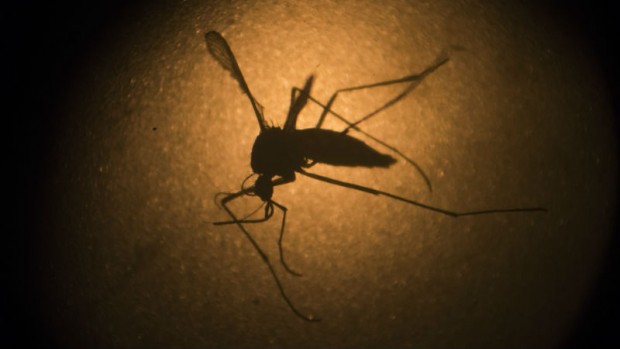Zika virus persisted in man’s semen for 2 months—report

An Aedes aegypti mosquito is photographed through a microscope at the Fiocruz institute in Recife, Pernambuco state, Brazil, Wednesday, Jan. 27, 2016. The mosquito is a vector for the proliferation of the Zika virus currently spreading throughout Latin America. New figures from Brazil’s Health Ministry show that the Zika virus outbreak has not caused as many confirmed cases of a rare brain defect as first feared. AP PHOTO
WASHINGTON—A man in Britain who was infected with Zika while traveling to the Cook Islands showed evidence of the mosquito-borne virus in his semen for two months, health officials said Friday.
The finding raises new questions for health authorities as they scramble to learn more about Zika — linked to a surge in birth defects in Brazil — and the risk of transmission through sex.
READ: 2 cases hint at possible sexual transmission of Zika
The case involved a 68-year-old man who was infected with Zika in 2014 while traveling.
He complained of a fever, rash and lethargy upon return to Britain, where he was tested and the results came back positive for Zika.
Though Zika symptoms are often mild and resolve themselves in about a week, the virus was found during tests of semen taken 27 and 62 days after the man’s initial infection, said a report from Public Health England, published online in the US Centers for Disease Control and Prevention’s Emerging Infectious Diseases Journal.
“Although we did not culture infectious virus from semen, our data may indicate prolonged presence of virus in semen, which in turn could indicate a prolonged potential for sexual transmission,” it said.
Speaking at an American Association for the Advancement of Science meeting in Washington on Friday, the National Institute of Allergy and Infectious Diseases (NIAID) chief Anthony Fauci said more work needs to be done to understand how long Zika may persist in a man’s semen.
“We don’t now know,” he told reporters.
“We had said, ‘Perhaps it is just during the acute infection.’ Well, that is obviously not the case.”
With Ebola, which comes from the same family of viruses as Zika, research on persistence in semen has shown that it could last up to nine months in some men.
“What we need to do are natural history studies” for the Zika virus in order to determine how long men should use condoms or refrain from sexual contact after a Zika infection, Fauci said.
The CDC last week urged condoms or abstinence for men who live in or have traveled to the more than two dozen countries and territories in South America and the Caribbean where the virus has been detected, especially if they have pregnant partners, in which case protective measures should persist until the end of the pregnancy.
READ: Zika advice to returning Filipinos: If you can’t abstain, wear condoms














